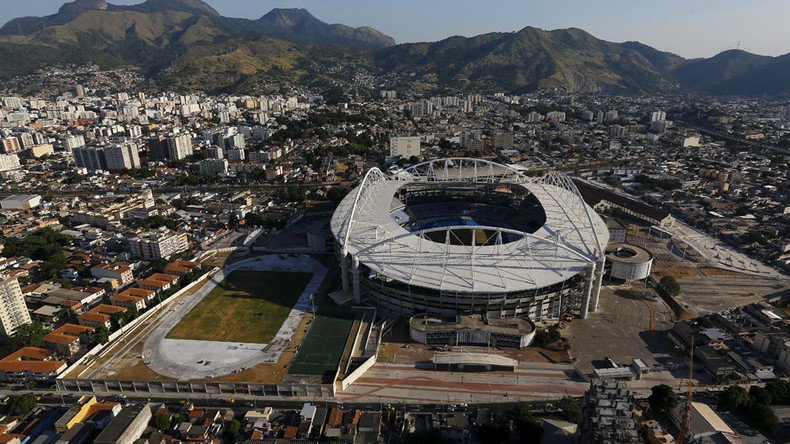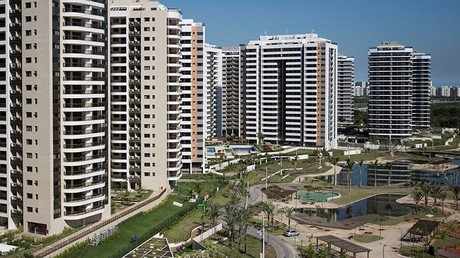Rio de Janeiro state govt declares ‘state of calamity’ over funding shortage ahead of Olympics

Rio de Janeiro state authorities declared a “state of public calamity” on Friday, less than 50 days before the start of the Olympic Games, amid a massive funding gap. The move is meant to trigger the release of additional federal funds.
The decree blamed the "serious economic crisis" on the oil price shock. It stressed that the government could fail to honor its commitments to host the Rio 2016 Olympic and Paralympic Games, which are scheduled to take place August 5-21 and September 7-18, respectively.
The crisis could cause a “total collapse in public security, health, education, mobility and environmental management,” the state government said.
Interim Governor Francisco Dornelles signed the decree, which authorizes the government to “adopt all necessary emergency measures to ration essential public services in order for the Rio 2016 Olympic Games and Paralympic Games to take place.”
Water sports athletes may face pollution danger at #Rio2016 Olympics https://t.co/7eVz6Rxnihpic.twitter.com/Aj029IRZN5
— RT Sport (@rtsportnews) February 20, 2016
The purpose of the decree is “to present to the society of Rio de Janeiro the financial difficulties of the state, paving the way for tough measures in the financial field and calling the attention of the federal authorities to the difficulties that we have been having with the metro, with health, with public security, so that they can work with us,” Gov. Dornelles said.
The move is expected to lead to a cash boost from the Brazilian federal government. Currently, the budget of Rio de Janeiro state has a shortfall of $5.6 billion for 2016.
The Rio de Janeiro state government has a responsibility to cover the costs of public security during the Olympics, as well as to expand the metro line to the Olympic Park and clean up the water at Guanabara Bay and the Lagoa competition venues.
Rio has already received around $300 million from the Brazilian federal government to extend the metro line. The federal budget, however, remains very limited, with double-digit inflation and record unemployment rate hurting the country’s fiscal prospects.
Meanwhile, Rio’s mayor Eduardo Paes spoke out on Twitter, arguing that the Rio state's decision will "in no way delay the delivery of Olympic projects and the promises assumed by the city of Rio."
Rio estimates that it will receive around 500,000 visitors for the Olympic Games.
The dire national economic crisis stems from the global oil price drop, which shocked markets at the end of 2014 and put significant pressure on commodity-dependent economies, such as Brazil.
In 2015, Brazil’s economy contracted 3.8 percent, marking the country’s worst recession in over two decades. Salaries for police, teachers and government workers have been held back due to lack of funds.
Brazil’s Rousseff ousted by media boycott, conspiring businessmen – ex-president Lula https://t.co/FaGJmWyePnpic.twitter.com/7gYusuNxrg
— RT (@RT_com) 21 мая 2016 г.
Increasing the uncertainty in the country is the controversial impeachment process against Brazil’s President Dilma Rousseff, who has been suspended for allegedly breaching spending accounting rules. The Senate will be voting on the impeachment in the coming months – possibly during the Olympic Games. In the meantime, the interim government led by Acting President Michel Temer has also been mired by corruption scandals, with three ministers stepping down over the course of a month.












